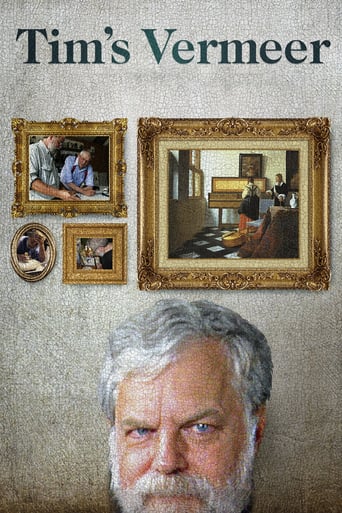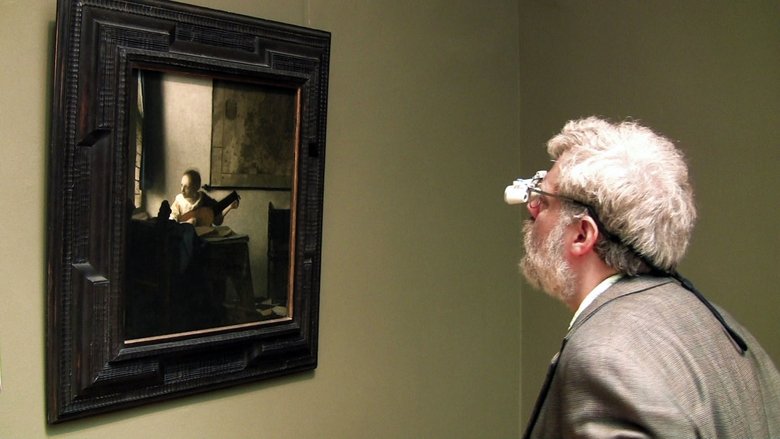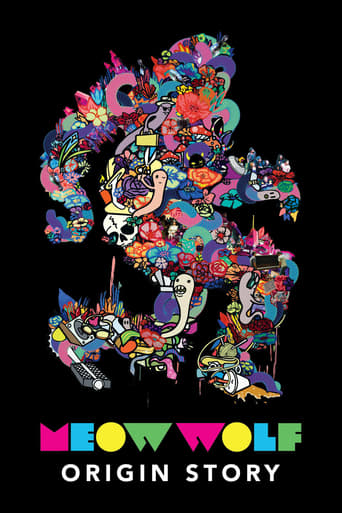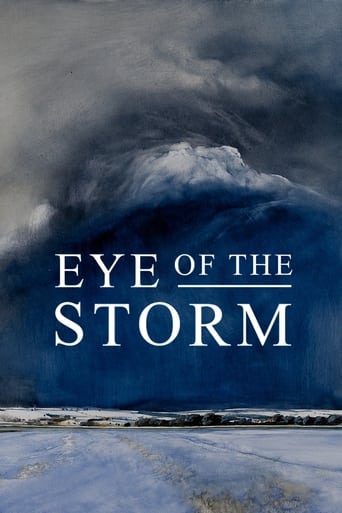Tim's Vermeer (2013)
Tim Jenison, a Texas based inventor, attempts to solve one of the greatest mysteries in all art: How did Dutch Master Johannes Vermeer manage to paint so photo-realistically 150 years before the invention of photography? Spanning a decade, Jenison's adventure takes him to Holland, on a pilgrimage to the North coast of Yorkshire to meet artista David Hockney, and eventually even to Buckingham Palace. The epic research project Jenison embarques on is as extraordinary as what he discovers.
Watch Trailer
Cast


Similar titles
Reviews
The movie's neither hopeful in contrived ways, nor hopeless in different contrived ways. Somehow it manages to be wonderful
It’s not bad or unwatchable but despite the amplitude of the spectacle, the end result is underwhelming.
There's no way I can possibly love it entirely but I just think its ridiculously bad, but enjoyable at the same time.
Strong acting helps the film overcome an uncertain premise and create characters that hold our attention absolutely.
I grade movies on my overall experience and reaction to a film. Those stories that educate me, intrigue my mind, spark the imagination, or make me want to immediately talk about the film leaving the theater-- always earn my highest marks. 'Tim's Vermeer' meets all of those traits and many more. It may have been a Dutch who inspired art through the help of a lens; but it was an American who broke the code on the 350 year-old mystery of how Vermeer did it. This spectacular documentary will leave you better off for seeing it and more appreciative of the genius behind the art--and the technology. My favorite kind of documentary where you laugh, you learn, you love, you stare fascinated at Tim's devotion to detail and you become fully invested in the complete and total mystery of Vermeer himself. Can't wait to share this with friends and family.
"Tim's Vermeer" is probably not a documentary that the average person would ever watch. Me being a huge Penn & Teller fan, however, I was the perfect audience. My wife, however, is not such a huge fan--but she ended up enjoying the film even more than me!This documentary was produced by Penn Gillette and he narrates it as well. His silent partner, Teller, directed the film. It's a strange story about a guy with too much time on his hands who has an obsession--to test out the theory that Jan Vermeer (the super-famous Dutch painter) actually might have used advanced technology (specifically a camera obscura-sort of device) to help him make such a super-realistic painting. Fortunately Tim Jenison appears to be very rich due to some of his inventions and has the time and obsessive drive to test out his idea. Through the course of the film, you see him exactingly replicate the studio room used by Vermeer and actually paint a Vermeer-style painting using this technique. What makes it even more amazing is that Jenison is NOT a painter and has novice skills in that department.While this probably sounds a bit boring, it really isn't. I love just about all of Penn & Teller's work--and this is no exception. As for the wife, she is an engineer and the way that science and engineering was used in the show REALLY got her excited--and it's rare to ever see my wife get his excited about a film. She loved it. Well worth seeing.
I would imagine that only art students or avid art collectors would know the name Vermeer if it was spoken out loud, where the rest of us would have to Google his name and learn about this name. Vermeer is actually a name, well a last name in Johannes Vermeer, who was a great painter in the 1600s. His work is known all over the world and is sought after by royalty, celebrities, and very wealthy business people. What makes Vermeer standout than any other painter from the 1600s? Well that's an interesting topic and question. It's such a fascinating subject, that Penn and Teller (the magicians and entertainers) decided to make one of their famous documentaries about it.This matter is is of great interest because Vermeer's paintings are photo-realistic. That is odd, because, it would be very difficult or impossible to capture the lighting, shades, and intricate details that Vermeer captured in his paintings if he did it free hand from memory, which he and people claimed he did. Since Penn and Teller are in the business of calling 'Bullshit', they seemed to have a great beginning to an incredible story, which was how did Vermeer really get the images so detailed in his paintings.Luckily for Penn and Teller, they knew a guy named Tim Jenison, who is a very wealthy technologist, meaning he has invented and sketched the way for new technology over the past few decades. It also means that he might be a bored billionaire with some interesting hobbies, one of those being Vermeer. Tim had a theory that Vermeer in fact did NOT paint these free hand, but rather used new technology at the time to basically trace his paintings, thus he set out to prove his theory, which took seven years to prove from start to finish. Tim's theory stated that Vermeer used a camera obscura, which was fairly new back in the 1600s, to project an image onto a canvas or wall.The projected image is portrayed upside down, but what Tim figured out is if you place a mirror that reflects that image under your eye and on top of your canvas, you have the image that you can sketch perfectly as if you were tracing it. First off, Tim has never painted in his life. Hell, he didn't even know how to hold a paintbrush correctly, but when he attempted to paint a portrait of someone as a trial run, it turned out spectacular, as if he has painted his entire life.After a few more test runs, Tim decided to try this theory on an actual Vermeer painting, specifically the 'The Music Lesson', because of it's intricate and vivid details on the rug and the lighting from the windows. But Tim didn't want to use modern day technology. Instead, he wanted to recreate what it was like for Vermeer in the 1600s. So, being a billionaire, he constructed the room, according to the painting and used the old equipment that Vermeer would have used to get his photo-realistic paintings. And thus the real story is set in motion as Tim spent eight months painting a Vermeer.We get to see the highs and lows of Tim's psyche as he struggles to finish the painting, even saying to the camera "If this wasn't for a movie, I would have quit already." Tim, Penn and Teller, travel to England to meet with some famous artists who reflect on Vermeer and Tim's theory as well as stop by Buckingham Palace to see the actual Vermeer painting, 'The Music Lesson', which is a comical bit in true Penn and Teller form. Throughout the documentary, seeing Tim paint different sections and how the small details are captured, we start to really believe that Vermeer indeed must have used this technique, even if it took many months to complete.And maybe Vermeer wasn't an artist, but one of the first technologists, just like Tim several hundred years later. In the end, Tim painted a Vermeer, and when he showed other art scholars and collectors his piece, they couldn't believe it and said it might just be better than the original. 'Tim's Vermeer' is a short, fun, and interesting documentary about one man's adventure to prove that a celebrated artist might have used technology to help him paint.
TIM'S VERMEER is an exceptionally strange documentary. Inventor Tim Jenison, with a proved track record of scientific and other discoveries, sets himself the task of recreating Vermeer's "The Music Lesson" using optical techniques with mirrors. The task is long and laborious - from inception to conception takes five years - but in the end Jenison manages to produce a copy of the Vermeer work that is thoroughly creditable. Teller's film includes several clichés of the tele-documentary genre; the highs and the lows, the periods of difficulty when Jenison wonders whether his task has any real values; the intense emotion when he finishes; and the triumphant vindication of his thesis that painters were often more scientific than was first assumed.To prove his point, Jenison enlists the help of a long list of experts, led by David Hockney and including Martin Mull, and Professors Philip Steadman and Colin Blakemore. All of them support his theory that the division between 'art' and 'science' is not quite as great as art critics might have first assumed; like Jenison himself, Vermeer probably made use of scientific or optical techniques while creating his work.This point is good as far as it goes, but it leaves the viewer confused. If, as Jenison proves, a painter uses optical techniques, and a self-confessed non-painter such as Jenison can successfully reproduce the painting, then it follows that the artist is not quite the genius that critics might have first assumed. As Andy Warhol proved nearly fifty years ago, art is infinitely reproducible, which therefore confounds the Romantic veneration of the author/ artist as genius. On the other hand, Teller's documentary celebrates Jenison, not necessarily as a painter, but as a successful inventor with a unique capacity for computer recreation. In his way he is just as skillful as Vermeer was nearly four centuries ago. TIM'S VERMEER actually ends up by celebrating the genius of the individual, even while trying to show that their works can be reproduced by self- confessed amateurs in the painting arts.Jenison is an engaging presence on screen, but we do wish that the documentary had been a little bit better thought out.













